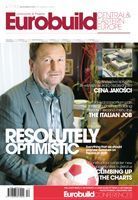By 2020, 24 pct of energy produced in Romania must come from renewable sources, as decreed by a European union directive. Leading figures in the renewable energy industry in Romania met
at the Eurobuild CEE conference in Bucharest to discuss how the country was measuring up to the task. However, the feedback on its performance so far was somewhat mixed The conference began with a short introductory speech by Viorel Badea,
a senator of the Romania parliament. This was fitting, as the country’s progress in the renewable energy field currently lies mainly in the hands of the politicians – a state of affairs that induces a feeling of weary resignation among many members of the industry. Actually, it was very decent of Mr Badea to come, as politicians often duck out of such events; and the speech he gave was one that was realistic about the issues facing the renewable energy sector in Romania. From the audience, however, there was not much optimism to be discerned. Nevertheless,




























































